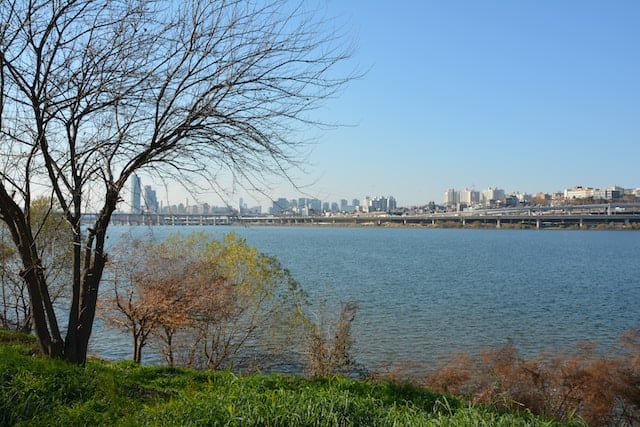Navigating FDI and Company Formation in South Korea

South Korea, celebrated for its impressive GDP growth of around 7% since the mid-1960s, experienced a profound economic formation in the aftermath of the 1997 Asian financial crisis. This crisis triggered a crucial reassessment of the country's economic strategy, marked by a closed economy and extensive governmental control.
Confronting the economic downturn, South Korea implemented significant policy changes, promoting a resurgence of foreign investment and a shift toward global economic integration. The International Monetary Fund's support was contingent on the formation of a more liberalized economy, resulting in the opening of capital and real estate markets to foreign entities. This strategic shift allowed South Korea to seamlessly integrate into the global economy, leveraging the full benefits of globalization for economic revitalization.
Foreign Direct Investment (FDI) emerged as a pivotal force in shaping South Korea's economy, becoming a cornerstone of the nation's economic framework. The ongoing influx of inbound investments has solidified its role as a primary driver of the South Korean economy.
Revised Legislation for Foreign Direct Investment (FDI) in Korea
Before 1997, South Korea faced minimal economic deceleration, but the financial crisis mandated a thorough revamping of restrictive policies. The legal infrastructure governing foreign investment underwent a substantial formation, shifting from the necessity of approval from the Ministry of Finance and Economy to unrestricted investment, contingent upon compliance with either the Foreign Investment Promotion Act (FIPA) or the Foreign Exchange Transactions Act (FETA).
Within the restructured framework, approvals under FIPA fall under the purview of the Minister of Trade, Industry, and Energy, while FETA facilitates the submission of reports to a foreign exchange bank, with specific exemptions necessitating reports to the Bank of Korea.
Structuring the Regulatory Environment for Foreign Investment in Korea
Several sectors, such as the central bank, media, and postal services, encountered strict restrictions on foreign investment. Authorized foreign investment in regulated industries is delineated within defined parameters. The Minister of Trade, Industry, and Energy, working in conjunction with the Foreign Investment Committee, possesses the power to institute constraints on foreign investments, particularly in response to national security considerations. Approval from the Minister of Trade, Industry, and Energy, in consultation with the Minister of Defense, is obligatory for foreign investment in defense industry firms.
Facilitating the Establishment Procedures for Businesses in Korea
South Korea, acknowledged as one of the globe's most business-friendly nations, ranks 16th out of 160 economies for the overall ease of conducting business, as per Forbes. The process of business registration in Korea, shaped by the Foreign Investment Promotion Act (FIPA), involves a multi-stage formation taking roughly four to six weeks.
Formation of Branches and Liaison Offices
Nonetheless, foreign enterprises, with the exception of those in restricted FDI sectors, have the opportunity to initiate the formation of branches in Korea. Depending on the sector, additional approvals from pertinent ministries may be required. Although the establishment of liaison offices is allowed, they function under more constraints compared to joint-stock and limited liability companies and are barred from participating in commercial activities or generating revenue.
Broadening FDI Advantages for Recreational Facilities
Recent legislative adjustments in South Korea have expanded the benefits of foreign investment to recreational facilities like fitness centers, museums, and theaters. Foreign investors in newly designated foreign investment zones receive support from the state, along with tax incentives, reduced rent, and various local tax exemptions.
Meeting FDI Criteria and Addressing Challenges
The overall FDI in Korea has exhibited fluctuations, reaching $13.3 billion in 2018 but declining to $10.57 billion in 2019. Commencing the formation of a company in Korea necessitates thorough research and strategic planning, taking into account factors such as initiation procedures, active participation in the setup process, and the selection of an appropriate business structure.
Evaluating the Pros and Cons of FDI in South Korea
South Korea's attractiveness as an FDI destination remains robust, driven by technological advancements, a skilled workforce, strong R&D capabilities, excellent infrastructure, and a consumer market with high disposable income. However, challenges include issues with regulatory transparency, the dominance of industrial groups, high salary structures, an aging population, expensive real estate, dependence on imports, and competition from neighboring regions.
Government-Driven Incentives Propelling FDI
The South Korean government actively promotes FDI through tax benefits, financial grants, and support for industrial site formation. Notably, in 2019, the government significantly augmented financial incentives to attract more foreign investment. Despite these encouragements, specific constraints persist in sectors such as public administration, energy, education, defense, and media.
Exploring FDI Prospects in South Korea
Sectors demonstrating significant potential for FDI in South Korea include IT, aerospace, biotechnology, cybersecurity, renewable energy, semiconductors, display, environmental industry, real estate development, and the venture industry. While certain sectors face complete restrictions, others have varying limitations on FDI percentages, with the government retaining the authority to approve FDI in defense. Navigating the intricate landscape of company formation in South Korea requires a nuanced understanding of these dynamics and a strategic approach to leverage the nation's economic potential.
Conclusion
In conclusion, the complex and nuanced landscape of foreign direct investment (FDI) in South Korea underscores the multifaceted considerations inherent in establishing and operating businesses within this dynamic economic environment. The historical evolution of FDI legislation in Korea, as examined in this discourse, reflects the nation's strategic response to economic challenges and its commitment to fostering a more open and globally integrated business environment. As the regulatory framework undergoes continuous refinement, foreign investors must vigilantly navigate the intricacies of legal structures, regulatory restrictions, and sector-specific considerations to capitalize on the promising opportunities presented by South Korea's robust economic landscape.
Pearson & Partners stands as a valuable resource for enterprises seeking to navigate the intricacies of company formation, incorporation, and tax accounting services within the Korean market. Leveraging their expertise, foreign investors can benefit from tailored guidance that aligns with the evolving regulatory landscape and maximizes the potential for successful market entry. As South Korea continues to position itself as a key player in the global economy, the judicious collaboration with seasoned consulting firms becomes indispensable for those seeking to establish a lasting and prosperous presence in this dynamic marketplace. Contact us for expert guidance and assistance in navigating the intricacies of company formation in South
.png?width=1656&height=121&name=rsz_%EB%A1%9C%EA%B3%A0%ED%88%AC%EB%AA%85%20(8).png)

